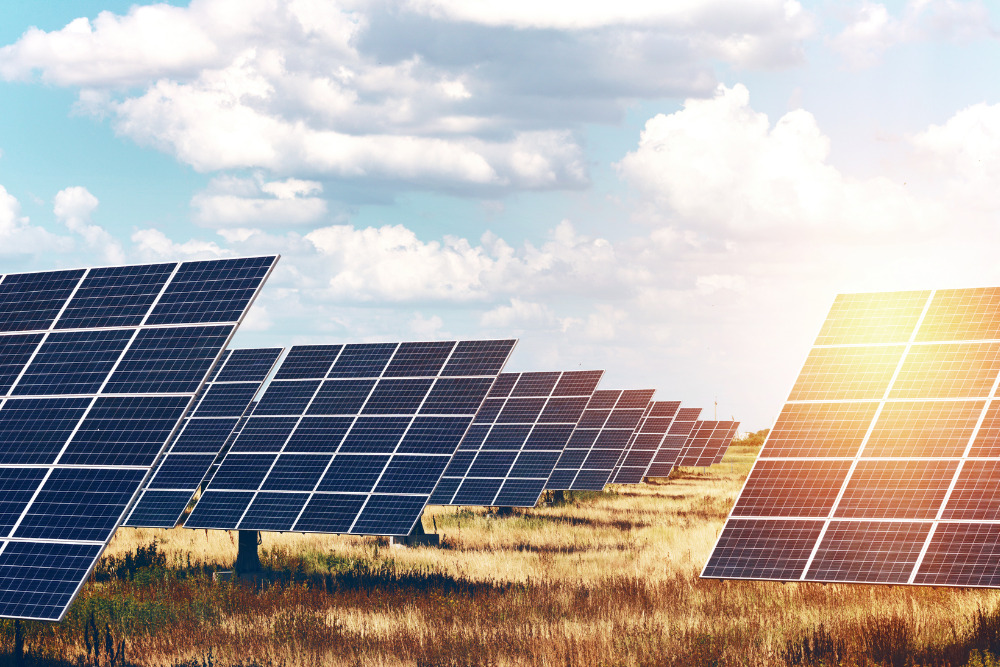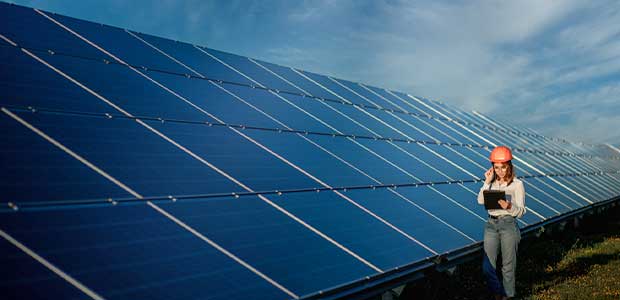Explore Budget-Friendly Solar Solutions with Simply Solar Illinois for Residences
Explore Budget-Friendly Solar Solutions with Simply Solar Illinois for Residences
Blog Article
Just How Solar Power Can Help You Save Cash and Decrease Your Carbon Impact
The integration of solar energy into your energy portfolio presents a compelling opportunity for both economic savings and ecological stewardship. By utilizing the sun's energy, property owners can dramatically decrease their month-to-month energy expenditures while likewise protecting against the changability of future energy expenses. Additionally, the shift to solar adds to a marked reduction in carbon exhausts, straightening personal finance with more comprehensive environmental objectives. As different federal government rewards appear, the question occurs: how can one efficiently browse the preliminary financial investments and ongoing advantages of solar modern technology to make best use of both financial and ecological gains?
Understanding Solar Energy Cost Savings
While the shift to solar energy often involves a preliminary investment, understanding solar power cost savings is critical for homeowners and companies alike. Solar power systems can dramatically reduce electrical power costs by taking advantage of the sunlight's power, converting right into substantial lasting economic advantages. By creating their very own electrical power, users decrease dependence on grid power, which is subject to rising and fall rates. These savings can build up with time, usually bring about a quick return on investment.
Moreover, solar power systems may get approved for various financial rewards, including tax credit reports and refunds, further enhancing their cost-effectiveness. The schedule of net metering permits users to offer excess energy back to the grid, developing an additional profits stream. These variables add to the general savings connected with solar energy.

Along with direct financial savings, solar energy supplies the included advantage of increasing property value. Houses outfitted with photovoltaic panels are typically much more attractive to purchasers, as they guarantee reduced power prices - Simply Solar Illinois. Understanding these components is necessary for any individual taking into consideration solar power, as it highlights not simply the prospective financial gains, yet likewise the broader ecological and financial benefits of embracing renewable energy remedies
Initial Expenses vs. Long-Term Advantages
When examining solar energy, it is necessary to consider the preliminary costs versus the long-term benefits. The upfront financial investment for photovoltaic panels, installment, and relevant tools can be substantial, usually ranging from $15,000 to $30,000, depending on the system size and home power demands. This first expenditure might hinder some house owners; nevertheless, it is important to take into consideration the possible cost savings in time.
Once mounted, solar power systems can significantly reduce and even eliminate monthly electrical energy expenses, causing significant long-term financial advantages. Research studies indicate that property owners can conserve anywhere from $10,000 to $30,000 over the life-span of their solar system, normally 25 years. Additionally, several states provide rewards, tax obligation credit scores, and rebates that can balance out initial prices, making solar much more available.

Lowering Your Carbon Impact
Lowering your carbon impact is a vital factor to consider in today's environmentally conscious culture, and taking on solar energy is one of one of the most reliable techniques to attain this objective. Solar power is a tidy, renewable resource that significantly lessens dependence on nonrenewable fuel sources, which are significant contributors to greenhouse gas emissions.

Moreover, the prevalent fostering of solar technology motivates the advancement of environment-friendly work and supports technologies in energy storage and performance. The more individuals and companies purchase solar energy, the better the cumulative reduction in next page carbon discharges, cultivating a cleaner ambience for future generations.
Federal Government Motivations and Discounts
Embracing solar power not just benefits the atmosphere yet can likewise lead to considerable economic cost savings, especially with the availability of federal government incentives and rebates. Different federal, state, and regional programs are developed to encourage house owners and services to spend in solar power systems, making the transition much more inexpensive.
One of the most famous incentives is the Federal Investment Tax Obligation Credit Scores (ITC), which allows planetary system owners to subtract a significant portion of the installment prices from their government taxes. This incentive has actually been critical in reducing the in advance costs connected with solar power systems. Additionally, many states provide their own tax obligation credit reports, grants, and rebates that can further boost savings.
Moreover, some city governments give residential or commercial property tax obligation exemptions for solar setups, ensuring that home owners do not encounter enhanced real estate tax as an outcome of their renewable resource financial investments. Energy business might also use motivations, consisting of net metering and feed-in tolls, which permit solar power users to market excess power back to the grid.
Selecting the Right Solar System
Picking the suitable solar system is important for optimizing energy efficiency and monetary advantages. The choice hinges on several variables, consisting of power needs, budget plan, and offered space. House owners ought to start by evaluating their electrical power consumption to figure out the system dimension needed for ideal efficiency.
Next, consider the different kinds of solar technologies readily available. Simply Solar Illinois. Photovoltaic Or Pv (PV) panels are one of the most usual, transforming sunshine directly right into electrical energy, while solar thermal systems concentrate on heating water. Each read review type has unique advantages relying on individual needs
Spending plan considerations are additionally extremely important. Initial installation expenses look at more info can differ considerably, so it is very important to contrast quotes from numerous companies and explore funding choices. Federal government incentives and rebates can additionally lower the economic worry, making planetary systems much more accessible.
Final Thought
In recap, solar power offers a practical remedy for achieving considerable cost financial savings while concurrently lessening carbon discharges. The initial financial investment, though substantial, yields considerable long-term economic advantages, with potential financial savings varying from $10,000 to $30,000 over 25 years. Furthermore, the ecological advantages of solar power add to lasting methods vital for combating environment adjustment. Government incentives improve the feasibility of solar technology adoption, urging a change in the direction of a cleaner, extra financially reliable energy source.
Report this page